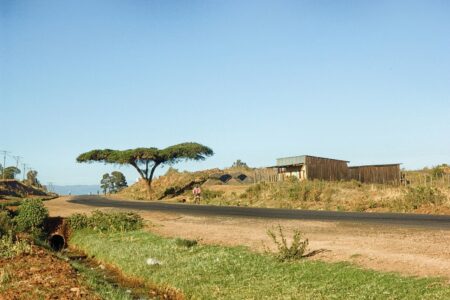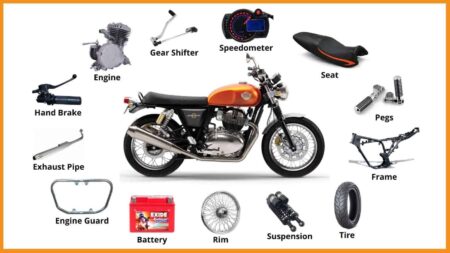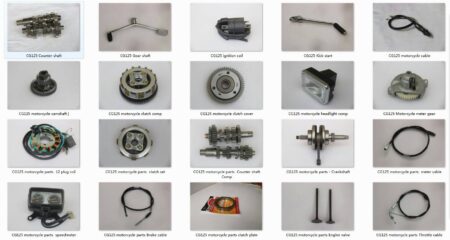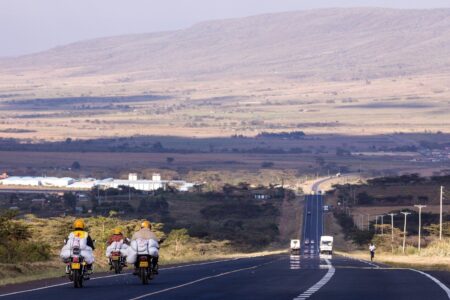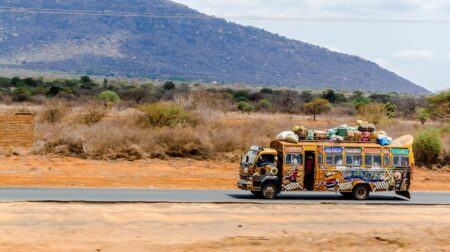The hum of motorcycles is an undeniable soundtrack to daily life across Kenya. From the bustling streets of Nairobi to the rural pathways, “boda bodas” and private motorbikes are essential for transport and commerce. This vibrant motorcycle culture has fueled a significant demand for spare parts, making a motorcycle spare parts business in Kenya an attractive venture. However, like any entrepreneurial journey, the road to success is paved with potential pitfalls. Many aspiring business owners, driven by enthusiasm, often overlook critical aspects, leading to preventable failures.
This comprehensive guide will illuminate the common mistakes made when starting a motorcycle spare parts business in Kenya and, more importantly, provide actionable strategies to mitigate them. By understanding these challenges upfront, you can steer your new venture towards profitability and long-term sustainability in the dynamic Kenyan market.
1. Inadequate Planning and Lack of a Business Plan
One of the most critical mistakes when starting a motorcycle spare parts business in Kenya is diving in without a comprehensive business plan. A lack of planning can lead to unclear goals, poor financial management, and failure to understand the market. Without a roadmap, you might struggle with inventory decisions, pricing, or marketing strategies.
Mitigation: Create a detailed business plan that includes market analysis, financial projections, target demographics, and operational strategies. Identify popular motorcycle models in Kenya, such as Bajaj, Honda, and TVS, and focus on stocking parts for these brands. Use online tools like Business Plan Template or Bplans to structure your plan. Regularly review and update your plan to adapt to market trends. A well-thought-out plan will guide your decisions and attract potential investors or lenders.
2. Involving Relatives Without Relevant Skills
In Kenya, many entrepreneurs start a motorcycle spare parts business as a family venture, involving relatives to cut costs or build trust. However, hiring family members who lack knowledge of motorcycle parts or business operations can lead to inefficiencies, poor customer service, and conflicts that blur professional and personal boundaries.
How to Mitigate:
- Prioritize Skills and Knowledge: Hire individuals with a genuine interest in motorcycles and a willingness to learn about spare parts. Technical knowledge is a huge plus.
- Formalize Roles, Even with Family: If family members are employed, define their roles, responsibilities, and compensation clearly. Professionalism is key.
- Invest in Training: Continuously train your staff on new products, popular motorcycle models in Kenya, customer interaction skills, and the use of any business systems.
- Conduct Thorough Interviews and Background Checks: Verify an applicant’s experience and references before making a hiring decision for your motorcycle spare parts business.
3. Poor Market Research and Stocking Irrelevant Parts
A common mistake in the motorcycle spare parts business in Kenya is stocking parts that customers don’t need, such as reams of paper or accessories for rare motorcycle models, instead of high-demand items like piston kits, brake pads, or tires. This ties up capital in dead stock, leading to cash flow issues.
Mitigation: Conduct thorough market research to identify the most popular motorcycle models in your area and their frequently replaced parts. For instance, boda boda riders in Kenya often need tires, tubes, spark plugs, and brake pads due to wear and tear. Consult local mechanics and riders to understand demand. Stock fast-moving parts and avoid overstocking niche items unless there’s proven demand. Regularly analyze sales data to adjust inventory.
4. Delayed Restocking and Poor Inventory Management
Taking too long to restock popular parts is a significant error in a motorcycle spare parts business in Kenya. Customers, especially boda boda riders, need quick access to parts to keep their bikes operational. Delays can drive them to competitors, hurting your reputation and sales.
Mitigation: Implement an efficient inventory management system, such as a point-of-sale (POS) system, to track stock levels and sales patterns. Build strong relationships with reliable suppliers in Kenya or abroad (e.g., Uganda or Dubai) to ensure timely restocking. Set reorder points for fast-moving parts like chain drives and oil filters to avoid stockouts. Consider bulk purchasing to secure discounts and maintain stock availability.
5. Failure to Prioritize Customer Needs
Failing to prioritize customer needs is a costly mistake in the motorcycle spare parts business in Kenya. For example, stocking decorative accessories when customers need functional parts like piston kits or spark plugs can lead to lost sales and frustrated customers.
Mitigation: Focus on customer-centric inventory decisions by stocking high-demand, fast-moving parts. Engage with customers through surveys or casual conversations to understand their preferences. Offer quality assurance, such as warranties on parts, to build trust. Train staff to provide excellent customer service, ensuring riders feel valued and return to your shop. Prioritizing customer needs will enhance loyalty and word-of-mouth referrals.
6. Waiting for Money to Accumulate Before Restocking
Some entrepreneurs in Kenya’s motorcycle spare parts business wait for profits to accumulate before restocking, leading to empty shelves and missed sales opportunities. This approach disrupts cash flow and frustrates customers who need immediate solutions.
Mitigation: Plan your finances to maintain a steady restocking cycle. Allocate a portion of your revenue specifically for inventory replenishment. Explore financing options, such as soft loans from trade unions or partnerships with financial institutions, to ensure consistent stock availability. Avoid using business capital for personal expenses to maintain working capital for restocking.
7. Choosing a Poor Location
Location is critical for a motorcycle spare parts business in Kenya. Setting up in an area with low motorcycle traffic or far from boda boda stages and repair garages can limit customer footfall and sales.
Mitigation: Select a high-traffic location near boda boda stages, repair garages, or busy market centers. For example, areas like Nairobi’s Kirinyaga Road or Dunga Road are known for motorcycle spare parts businesses due to their proximity to riders and mechanics. Ensure the premises are secure, visible, and accessible, with adequate parking and signage to attract customers.
8. Neglecting Marketing and Online Presence
Many new motorcycle spare parts businesses in Kenya rely solely on walk-in customers and fail to invest in marketing or an online presence. This limits their reach in a competitive market where customers seek convenience and variety.
Mitigation: Develop a robust marketing strategy that includes both online and offline channels. Create a social media presence on platforms like Facebook and Instagram to showcase your stock and promotions. Use word-of-mouth marketing by offering referral discounts or loyalty programs. Invest in signage, banners, and local advertising to increase visibility. An online presence can attract customers from beyond your immediate area.
9. Ignoring Legal and Licensing Requirements
Operating a motorcycle spare parts business in Kenya without the necessary licenses and permits can lead to fines, penalties, or even closure. Some entrepreneurs overlook these requirements to cut costs, which can backfire.
Mitigation: Register your business with the relevant government agencies and obtain a Single Business Permit from the County Government, which typically costs Ksh 5,000–10,000. Ensure compliance with tax regulations by applying for a KRA PIN. If handling hazardous materials like engine oil, check for additional permits. Consult a legal expert to ensure all requirements are met.
10. Poor Financial Management and Lack of Bookkeeping
Poor financial planning and inadequate bookkeeping are common pitfalls in a motorcycle spare parts business in Kenya. Mixing personal and business finances, underestimating costs, or failing to track expenses can lead to cash flow crises and business failure.
Mitigation: Open a dedicated business bank account to separate personal and business finances. Invest in simple bookkeeping software or hire a part-time accountant to track sales, expenses, and profits. Maintain a buffer of at least twice your working capital to handle unexpected costs, such as emergency restocking or repairs. Regularly review financial reports to make informed decisions.
Additional Tips for Success in Kenya’s Motorcycle Spare Parts Business
To further ensure the success of your motorcycle spare parts business in Kenya, consider these strategies:
Source from Reliable Suppliers: Build relationships with reputable suppliers in Kenya, Uganda, or Dubai to ensure quality parts at competitive prices. Verify supplier authenticity to avoid counterfeit products.
Embrace Technology: Use a POS system or inventory management software to streamline operations and track stock levels efficiently.
Stay Updated on Trends: Attend industry events, follow motorcycle blogs, and network with other retailers to stay informed about market trends and new technologies.
Offer Competitive Pricing: Price parts affordably while maintaining quality to attract price-sensitive customers like boda boda riders. Offer discounts or promotions to build loyalty.
Prepare for Economic Fluctuations: Diversify your product offerings to cater to different budget segments and explore partnerships with financing institutions to offer installment plans during economic downturns.
Conclusion
Starting a motorcycle spare parts business in Kenya is a promising venture, but avoiding common mistakes is crucial for long-term success. Inadequate planning, involving unskilled relatives, poor inventory management, and neglecting customer needs can hinder growth. By conducting thorough market research, prioritizing fast-moving parts, maintaining efficient restocking cycles, and investing in marketing and legal compliance, you can build a thriving motorcycle spare parts business in Kenya. With the right strategies, your business can tap into the growing demand for motorcycle parts, driven by the boda boda industry, and achieve profitability within months. Take the first step today, plan wisely, and position your motorcycle spare parts business in Kenya for success in this vibrant market.




